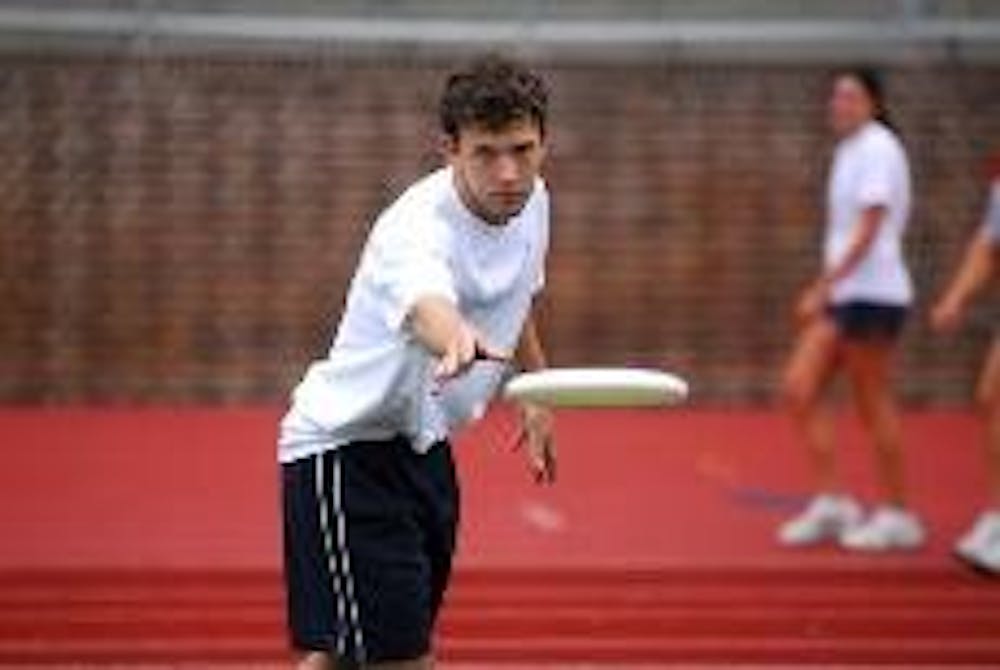Here's a new spin on university rankings: Apparently, the best schools are the ones with champion ultimate-frisbee teams.
That's because the quality of a school's ultimate-frisbee team may be an accurate predictor of its academic success, according to a report released this month by University of Washington psychiatrist Michael Norden.
Norden ranked the ultimate-frisbee teams of 86 private universities based on teams' performances in the past decade, and he says that the top-ranking schools for frisbee also have the highest graduation rates and the most students receiving prestigious scholarships.
Penn ranks 10th on Norden's list.
Stanford, Brown and Harvard are the top three respectively.
"All colleges that have good ultimate teams are good schools," he said. "There is an extremely strong correlation between ultimate-frisbee rankings and measures of academic performance."
And he has the numbers to back it up.
The top 30 teams on his list have an average graduation rate of 90%, while the average for all private American universities is only 73%, Norden said.
But that's not all - he added that the top seven schools for ultimate frisbee tended to get as many Rhodes and Marshall scholarships as all the other private schools he considered combined.
College senior Alexandra Chan, captain of the Penn women's ultimate-frisbee team, said Penn's team has not ranked highly on the national level in recent years.
"Ultimate is so much stronger on the west coast than the east coast," she said. "We haven't really been in the top tier."
But Wharton junior Andrew Baill, captain of the Penn men's ultimate-frisbee team, said he finds the size of a school generally effects the quality of its team.
Norden said his study was largely unaffected by size differences between private universities.
"One thing that was striking was, the finding was able to withstand difference in size," he said.
However, he added that Caltech was an outlier, ranking low in ultimate frisbee because it is a relatively small school.
Norden said he was motivated to research the topic because his son, who is a nationally ranked ultimate-frisbee player, is currently looking to apply to colleges.
He is also compiling a ranking of ultimate-frisbee teams for public universities, using only the current year's data. He said he plans to release the new study within the next week.



